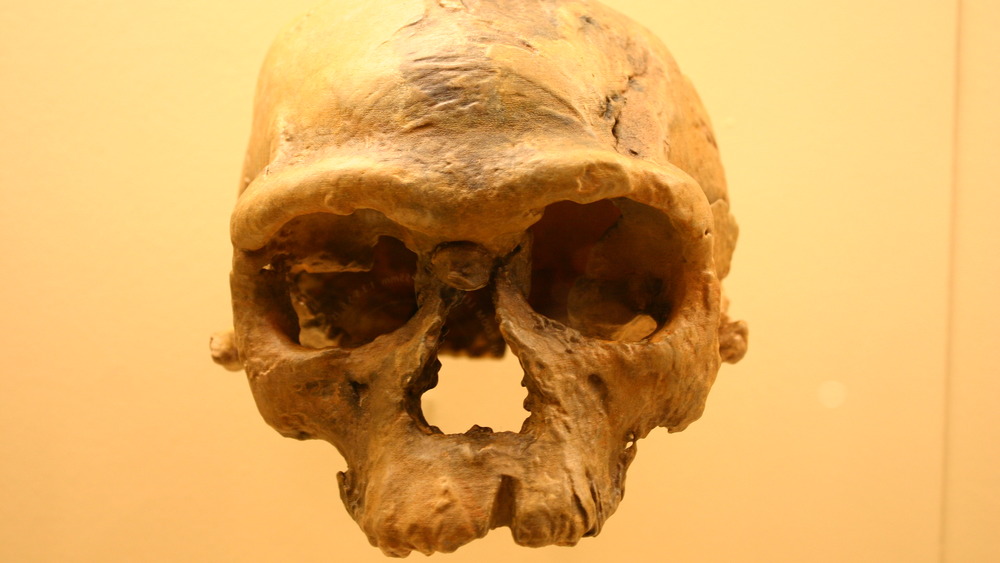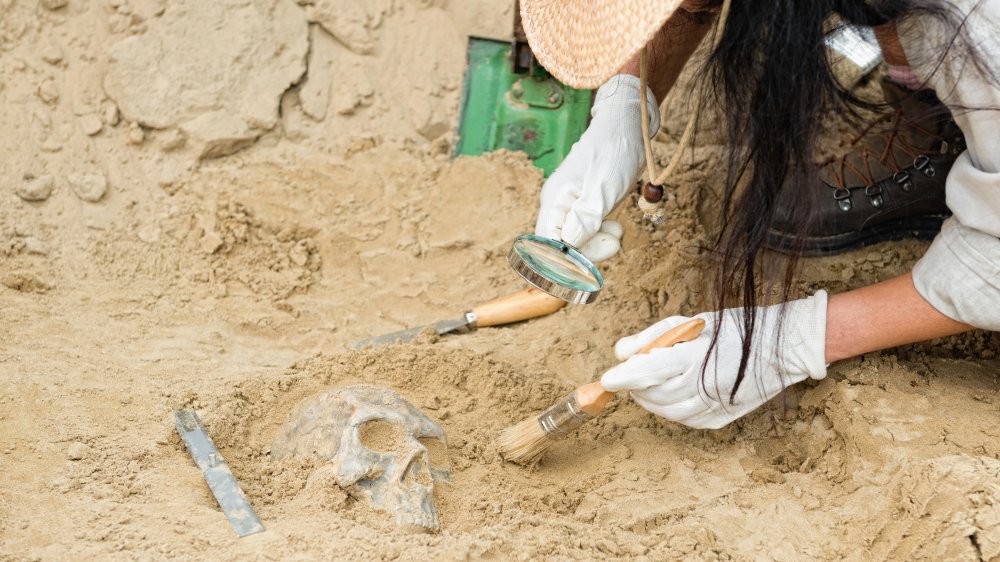These Are The Oldest Human Remains Ever Discovered
In 2017, a team of paleoanthropologists in Morocco made a discovery that would fundamentally alter our understanding of the origin of our species. Their findings, published in Nature, push back the oldest known beginnings of Homo sapiens another 100,000 years. (Looks like we can add this one to the list of discoveries that proved we got history wrong.)
For generations, archaeological consensus placed the origin of our big-brained, bipedal species somewhere in East Africa. According to Science magazine, a pair of sites in what is now Ethiopia had the world's tomb raiders believing that modern humans began our journey in the Great Rift Valley around 200,000 years ago. The new discovery suggests hominids had spread throughout Africa long before that.
Found by miners in 1960, the first fossil discovered at Jebel Irhoud, an archaeological site about 60 miles west of Marrakesh, was a remarkably complete human skull. It was initially believed to have belonged to an African Neanderthal, but French paleoanthropologist Jean-Jacques Hublin, who had studied a fossilized jawbone from the site for decades, wasn't convinced. He led a team of researchers through new excavations of Jebel Irhoud in 2004, and the 22 new human fossils — including jaws, teeth, arm, leg, and skull bones belonging to at least five individuals — are now the oldest human remains ever discovered, by 100,000 years.
We made our most recent evolutionary step face-first
The bones found at Jebel Irhoud suggest that we Homo sapiens may have evolved beauty before brains (big surprise). According to Phys.org, the skulls have an elongated braincase that more closely resembles the Neanderthal's, but the small, gracile (an anthropological term for "slender") face looks more like our own. Philipp Gunz, a researcher on the team that published the findings, said that the braincase tells us about the shape of the brain and how it evolved.
He said that the team's findings "suggest that human facial morphology was established early on in the history of our species, and that brain shape, and possibly brain function, evolved within the Homo sapiens lineage."
The findings at Jebel Irhoud may have advanced our knowledge of our genealogical beginnings by leaps and bounds, but remember that these are only the oldest human remains ever discovered — so far. Who knows what we'll find as we keep digging? In a generation or two, this paradigm-shifting discovery may be little more than another fact about the human brain everyone gets wrong.

